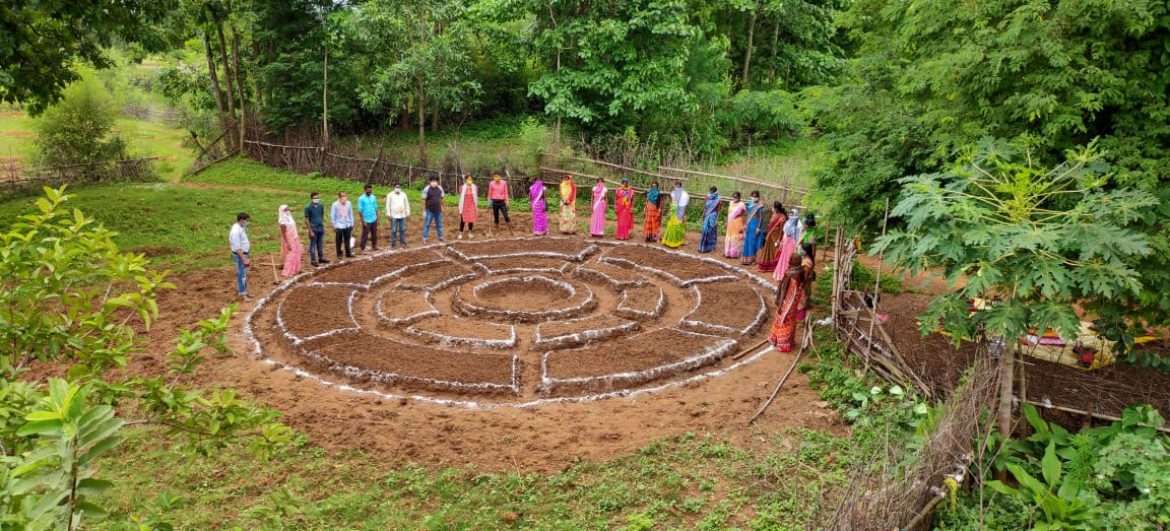Quis autem velum iure reprehe nderit. Lorem ipsum dolor sit nulla or narjusto laoreet onse ctetur adipisci.

Supporting tribal women in distress
PRADAN’s livelihood interventions have given a new lease of life to Jharkhand’s tribal women.
The COVID-19 lockdown impact on the tribal population in Jharkhand could have been worse. But, the potential issues of humanitarian crisis in this belt were mitigated by PRADAN’s prompt intervention that included community coordination and complementing government efforts in delivering aid to one of the most vulnerable groups. PRADAN works in seven states in India, but their maximum outreach is in Jharkhand, where they work with 3-4 different tribes.
Post COVID-19 lockdown, the PRADAN team worked on – identifying vulnerable families, taking steps to stop community spread, and engaging members of the community through their livelihoods.
Nrusingh from PRADAN says, “When the lockdown started, people started coming back to their districts and villages. We started working with the panchayat raj institutions, block administration, and district administration to identify families that required immediate help. For this, we leveraged our network of community-based organizations like Self Help Groups (SHGs) in the region.”
In all, the PRADAN identified 38,733 vulnerable families, who were promptly provided with dry ration, medical safety goods, and sanitary pads for women.
The team identified 84 panchayat bhavans and schools, where people could be quarantined in order to prevent further spread of the disease. The district health care workers monitored all families returning to their villages. To ensure that the community was well-informed on COVID-19 social distancing norms and preventive measures, the PRADAN team embarked on an awareness campaign using microphones and speakers. Over the last 3-4 months, the team has covered 8306 hamlets through such campaigns.
“Although a lot of content on COVID-19 was available on government websites, we had to translate that into local languages Sadri and Kuduk for people to understand,” says Nrusingh.
During the lockdown, livestock proved to be a good source of income for many families, as women were able to sell backyard poultry. To encourage this, PRADAN’s team regularly engaged with the women of the community, advising them on increasing their capacity and on animal vaccination. Given the organization’s focus on cultivation, including kitchen gardens that can help families meet their nutritional needs, the team embarked on one of their most significant missions.
Nrusingh says, “One of the key things that we did during the lockdown was mapping community demand for fertilizers and seeds. We consolidated data on the requirement of such items and linked this demand with traders for procurement. Although we had done this before, what we did during the pandemic, was on a much bigger scale.”
Through this exercise, the PRADAN team supported 30,922 vulnerable families with improved seeds of paddy and pulses. The team now plans to train tribal women on dealing with merchants, on bargaining with them, and on selling their produce at a reasonable price.
To support communities, PRADAN worked with multiple donors, including Azim Premji Philanthropic Initiatives (APPI).
“Once food crops like paddy and pulses are stabilized,we will also take up the role of marketing. We want to cultivate all types of vegetables to help tribal farmers make some cash,” adds Nrusingh.
You can reach out to PRADAN on headoffice@pradan.net
